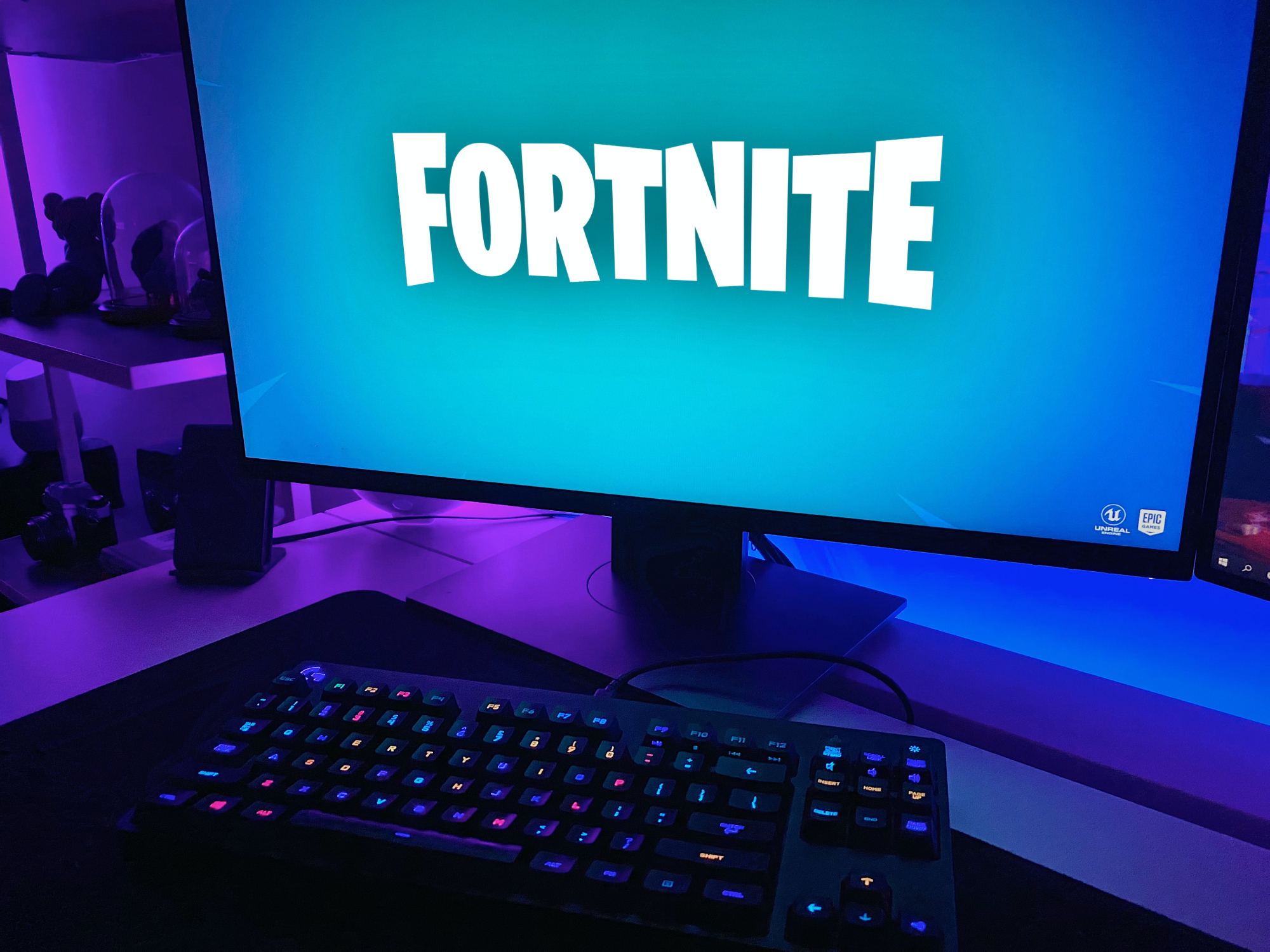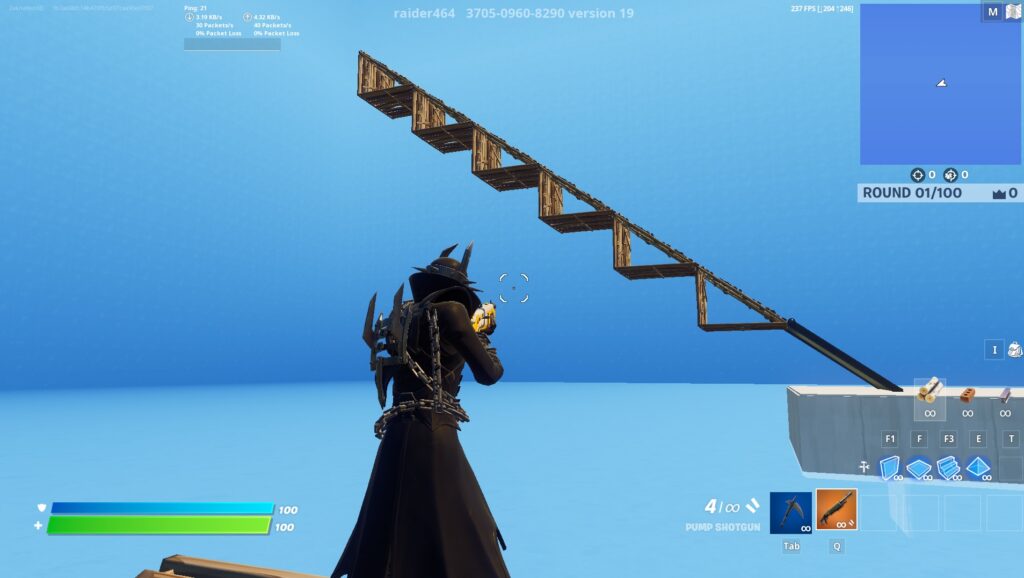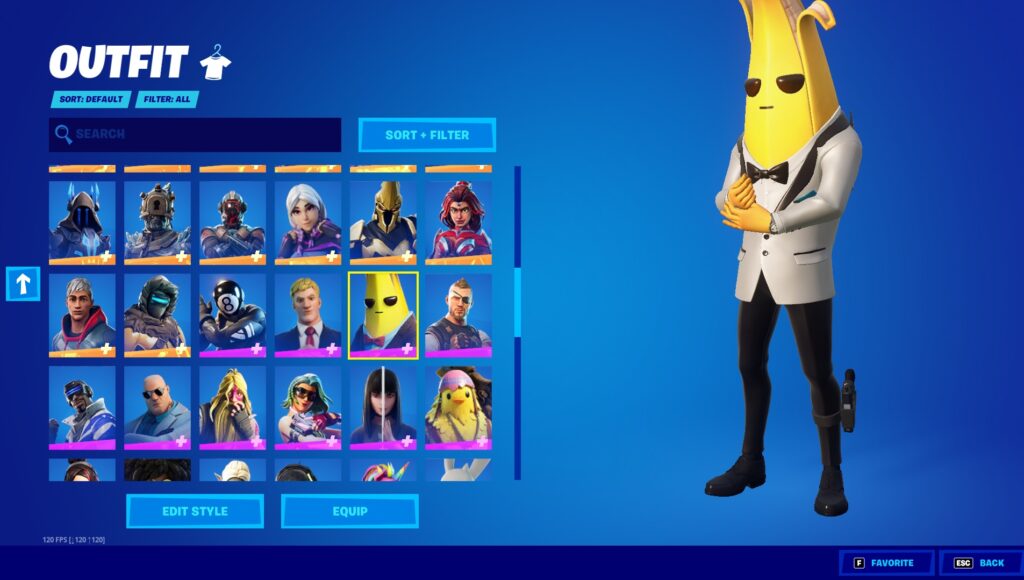
Hi. My name is Jean, I’m 37 years old, and I play Fortnite. Sometimes it’s weird to admit that I play a video game known for its popularity with tweens and teenagers. But I love it for the same reason they do: it’s a solid shooter with unique gameplay mechanics and neverending ways to improve. And if your kids play—as mine do—or are interested in starting, it can be a lot of fun to play together.
That said, Fortnite is a game with a high skill ceiling and there are some things you’ll want to know as both a parent and a brand-new player before you and your kids make your first drop together.
The damage trap, the only trap in the fortnite: Setting of the game and following and screenshot of maximum performance. It is possible that the changes have been made to introduce this new item.
What is Fortnite?
Fortnite is a free-to-play battle royale game available on PC, PlayStation, Xbox, Nintendo Switch, and Android devices. Battle royales consist of real players navigating the same map; searching for weapons, health, upgrades, and shields; and fighting until only one player (or team) remains. Throughout the game, a storm element shrinks the map, forcing players closer and closer together so they have to fight until the victor is crowned.
Most popular battle royales, like Fortnite, Call of Duty: Warzone, and Apex Legends, are shooters, though some games in this genre utilize other weapon systems. Spellbreak, for example, uses spell-casting for combat rather than guns. What makes Fortnite unique is its building mechanic. In most battle royales, players have to use the landscape as cover. But in Fortnite, players can build their own editable walls, floors, cones, and ramps to create fortresses, towers, and tunnels as both protection and spaces to fight. It’s a huge reason for the game’s popularity. Rather than relying only on smart positioning and solid aim—though both are still critical—Fortnite players use building both offensively and defensively to win the elusive “victory royale.”
Although building is a major component of the core game, Fortnite recently added a dedicated no-build option for players who aren’t interested in that part of the game. They’ve even hosted tournaments in this mode, so it’s an option that should be around for some time.
Is Fortnite appropriate for kids?
This is a question each parent has to decide for themselves based on their children’s ages, personalities, and comfort level, but there is a reason so many young people play the game. First and foremost, while the game is based on shooting and eliminating opponents, the graphical style is fun and silly. Players can load into the game as a giant banana named Peely, or one of more than a dozen superheroes across Marvel and DC, or any of hundreds of other absurd characters—though you will have to buy those fancy skins. In game, you can also dance with your friends, float through the air by carrying a chicken, ride on the back of a dinosaur, and even water ski behind a speeding shark.
When players are eliminated, there’s no blood, screaming, or bullet impact sounds, and there’s no body left on the ground like in more realistic fighting games. The defeated player simply vanishes and drops their loot. For a violent video game, there’s remarkably little violence, which is why I let my 6-year-olds watch me play on a limited basis.
[Related: What I wish I knew before playing Minecraft with my kids]
The most questionable content for kids comes from the multiplayer modes. Players can load into games with their friends and talk to one another, but if their friends aren’t on, they can also load into multiplayer modes with random people, who can talk. Now, this can be a lot of fun—I’ve met people online who I still play with years later. However, like any other community on the internet, some players are just looking for excuses to be toxic. Strangers have shouted vile, racist, horrible things at me, and there are absolutely scammers fishing.
Keeping this in mind, Fortnite does have numerous features aimed at protecting kids online. The first is that technically, no one under the age of 13 is allowed to have an account (though many do). In the rare instances that my kids play, they use my account, with me over their shoulder. Fortnite also has parental control settings, including the ability to turn off friend requests, voice chat, and in-game messaging. It’s a good idea to keep those elements turned off until you know for certain that they are playing with their friends. As your kids gain autonomy in the game and on the internet overall, practice good online safety habits. You should also keep the game visible in shared areas of the house, and don’t necessarily let them play wearing headphones (though good headphones do make the game easier). And talk about how to handle unwanted or uncomfortable interactions online.
Finally, if your kids do start to take the game more seriously and show an interest in competing, consider reaching out to the Coalition of Parents in eSports (COPE). This is an organization dedicated to helping parents better understand the opportunities that gaming offers, and how to help their children navigate the competitive gaming world.
Find a comfortable way to practice
Fortnite is a lot of fun, but there’s a steep learning curve and a high skill gap. The hours of Halo, GoldenEye, and Call of Duty many of us played as kids won’t help you much. My recommendation is to jump into your first game or two and experience the skill gap for yourself. When you do, avoid landing at one of the named locations on the map. Those tend to have a lot of players, and you’ll get eliminated quickly. Glide into the in-between areas and find a gun and some shields (the blue jars you’ll find in chests or on the ground).
Hopefully you’ll find one or two of the AI players that fill in game lobbies before you run into a real player, who will probably eliminate you quickly, and in a confusing fashion. I can’t count how many times a player has built a box completely around me and then shot me from behind when I thought they were still in front of me.
Unfortunately, due to the high skill ceiling of even bad Fortnite players, it’s hard to jump in as someone brand new and have success. Building and editing is a unique and unfamiliar mechanic for most people, but it is the most important element of the game. If you can’t build competently, you’re going to lose. You can learn to build live, in game, but it’s faster and less stressful to learn on a practice map.
Head over to the Island Code tab and open up a Freebuilding map—these are just wide-open areas with no enemies where you can practice building. You should find one that works for you, but I like Raider’s Piece Control Map because it has both freebuilding and more structured building practice sections.
First, get comfortable placing a wall, ramp, floor, and cone without thinking about which button to press. As you’re practicing, consider changing which input on your keyboard or controller does what. Fortnite’s keybinds are completely customizable, so you can map your controls to whatever is most comfortable for you. I have half of my building binds on the auxiliary buttons of my mouse, for example.
Once you’re comfortable placing builds, you’ll need to learn to build three basic structures:
- A box: four walls with a floor and a ceiling (a cone or another floor)
- A 90: the fastest way to gain elevation over your enemy, by building walls and ramps straight up
- A triple ramp: a protected ramping system with a wall, a floor, and a ramp, which is harder for enemies to destroy

There is so much more to building than just those three structures, but they will help you prolong and even start winning fights. Once you’ve mastered these, you can branch out into the other areas of Fortnite building and editing. If your kids already play, ask them for advice on where to go next. If you’re learning together, YouTube will be your best friend. There are thousands of educational videos available, but two of my favorite content creators for Fortnite tutorials are KenBeans and Jivan. They both feature videos that cover everything from basic gameplay mechanics to breakdowns of what the pros are doing. And if you’re looking for people your age to play with, check out a streamer called Swearin’. He has built a community of adult players who run practices, tournaments, and just enjoy playing with other people their own age. I’m a somewhat active member of that community, so if you’re interested in playing, that’s the best place to find me.
Experiment with other game modes
While the core of Fortnite is its battle royale mode, the game offers hundreds of alternative modes, some officially created by Epic Games, and even more made by regular, everyday users. So when you’re tired of dying to 15-year-olds, hop over into the Discover tab and explore some of the options. There are modes for everything from practice maps to death runs to recreations of popular games like Among Us.
If you have younger children like I do, these creative maps are a great way to introduce your kids to the mechanics of the game without giving them access to the more violent elements. One mode my kids in particular like is called Open Driving World. All you do is hop in a car and drive around, hitting jumps and launching off mountains. It’s perfect for 6-year-olds, or anyone looking for a no-stress gaming session.
[Related: The next generation of race car drivers started out as gamers]
And if you’re looking for a creative mode that doesn’t exist, maybe you can be the one to bring it to the world. Every player has access to their own Creative map, where they can bring their vision to life. Maybe you’ll make your kids’ new favorite mode.
Decide how much you want to spend

As I mentioned, Fortnite is 100 percent free to play. There are no unlockable levels or game modes that you have to pay to access. That said, Fortnite has a lot of buyable content. Players can purchase new skins (in-game avatars), harvesting tools, backpacks, gliders, emotes, dances, and all kinds of other aesthetic content for the game. These aesthetics don’t give you any kind of competitive advantage (at least in theory), but they are a lot of fun. Fortnite releases new designs regularly, and often does collaborations to create skins from popular franchises, including DC, Marvel, Star Wars, The Walking Dead, and Dune.
You can buy these aesthetics as one-offs in the game’s item shop, which also features two different types of larger packages. The first is what’s called a Battle Pass, which costs about $10 every season, or approximately every three to four months. This will give you access to in-game quests that you can complete to unlock new skins and other content. Or you can join the Fortnite Crew for $12 a month, which gives you access to the Battle Pass, additional in-game currency, and exclusive skins and aesthetic content for members.
Whether you want to pay for purely aesthetic content in the game is up to you, but do know that your kids will eventually ask for it. And honestly, if you start playing, you’re going to be tempted as well—I have spent far more money on Fortnite than I thought I would when I first fell in love with the game.
After all, there aren’t many games where I can use Batman to shoot a stormtrooper in the face while we’re both running from a giant banana.